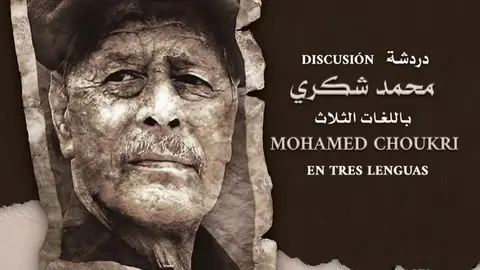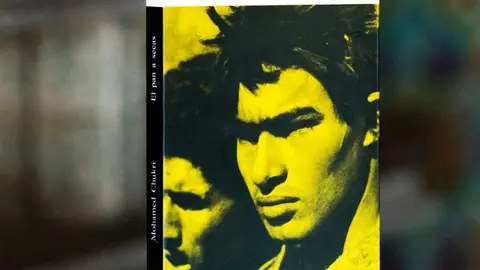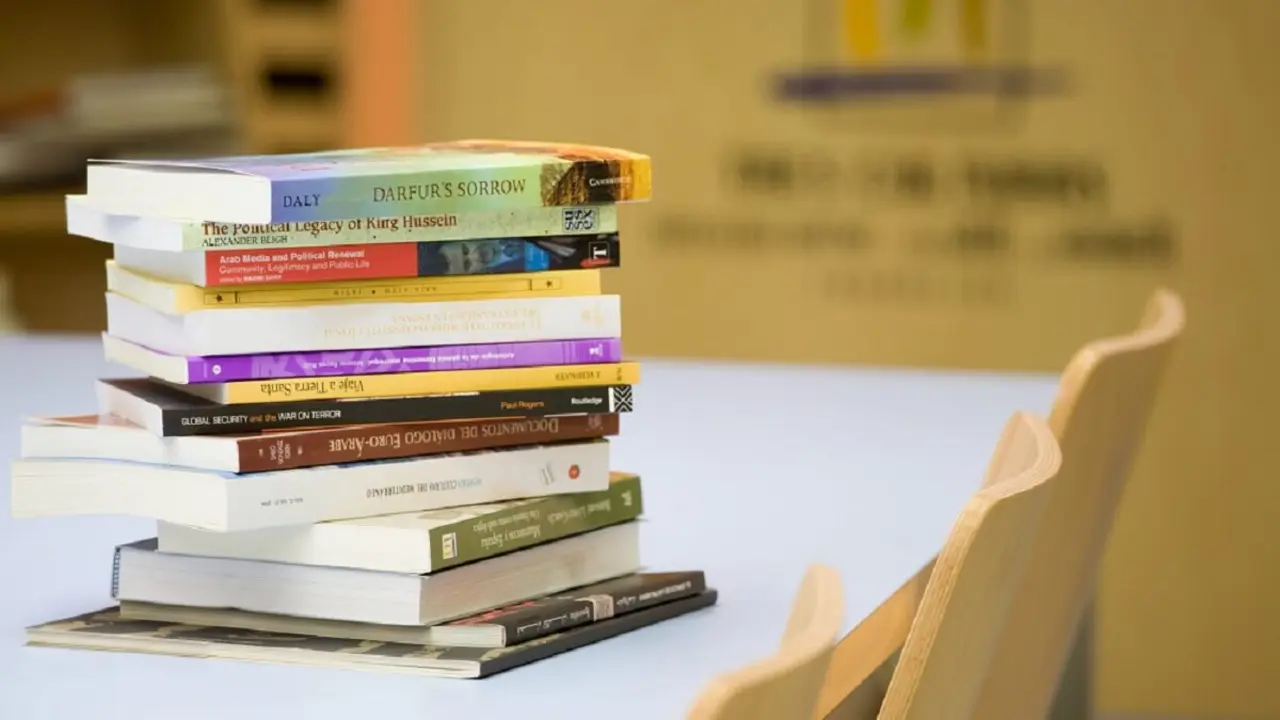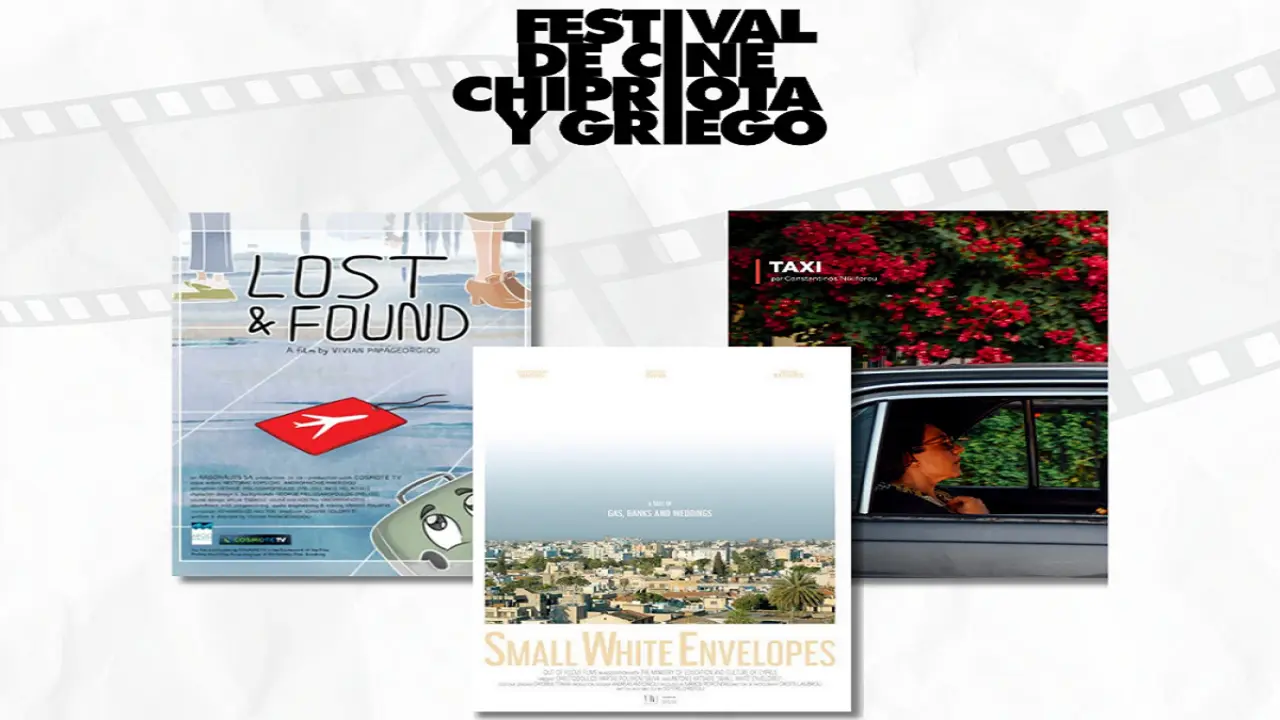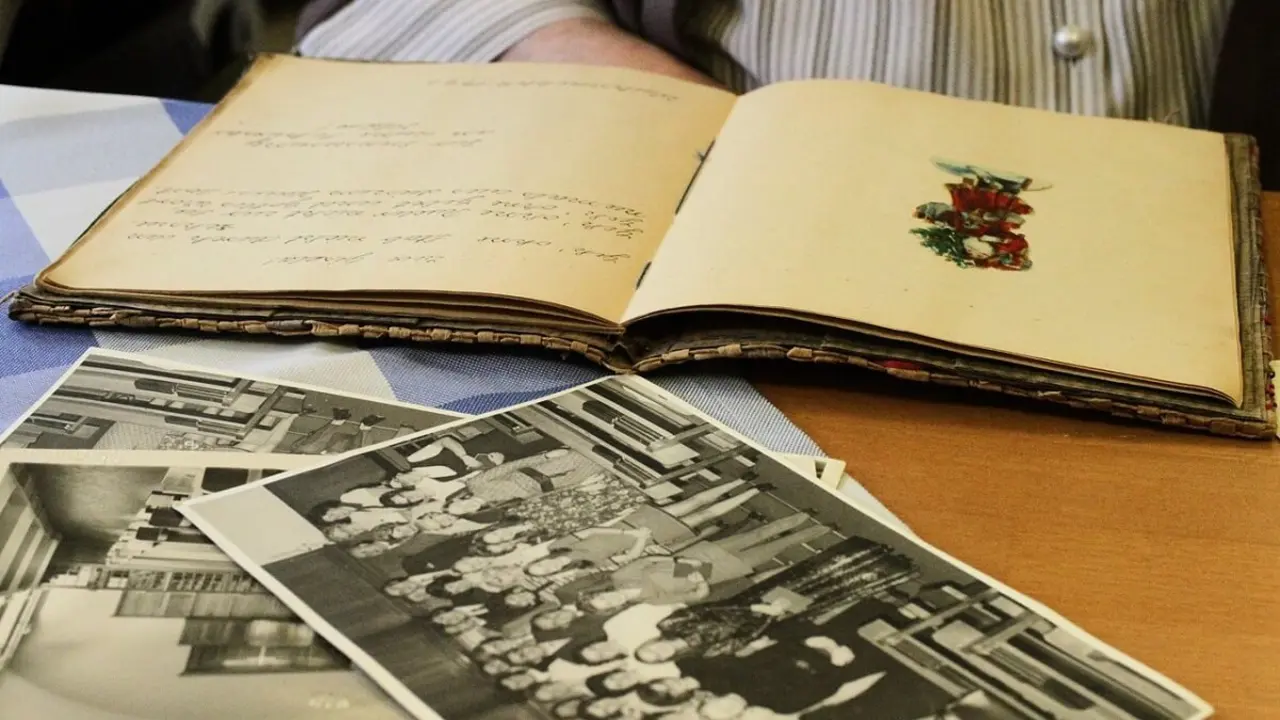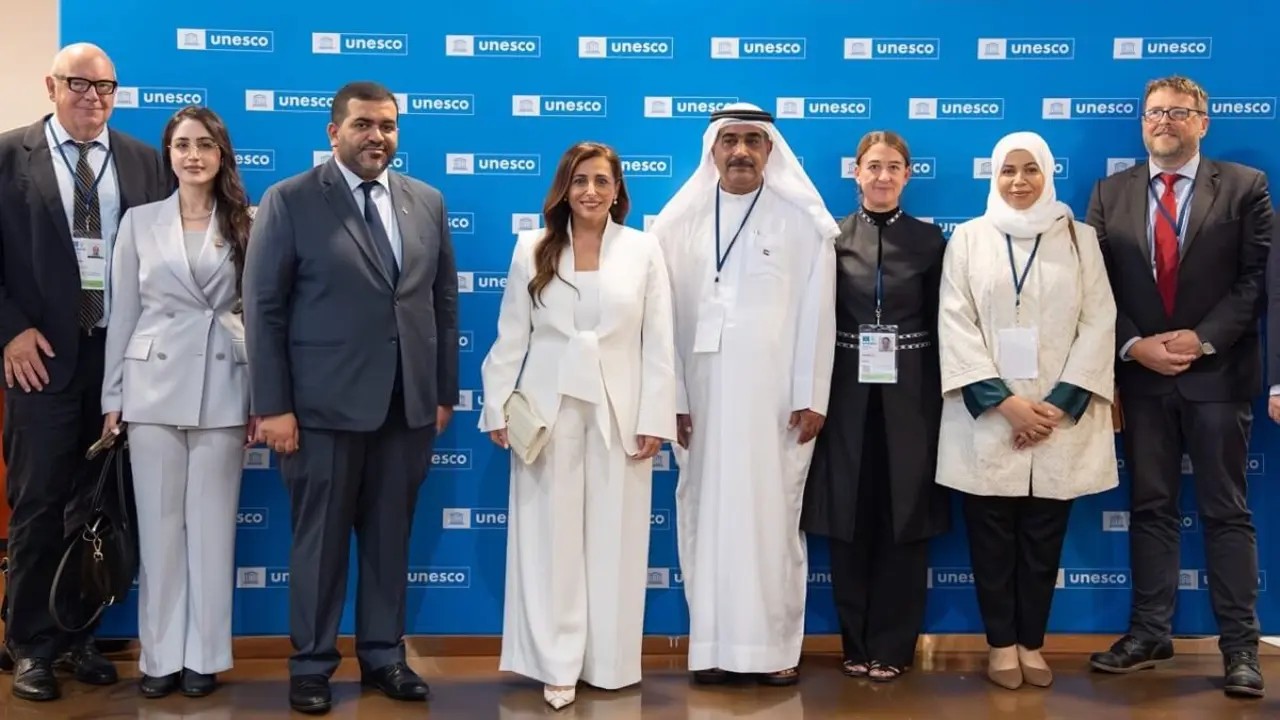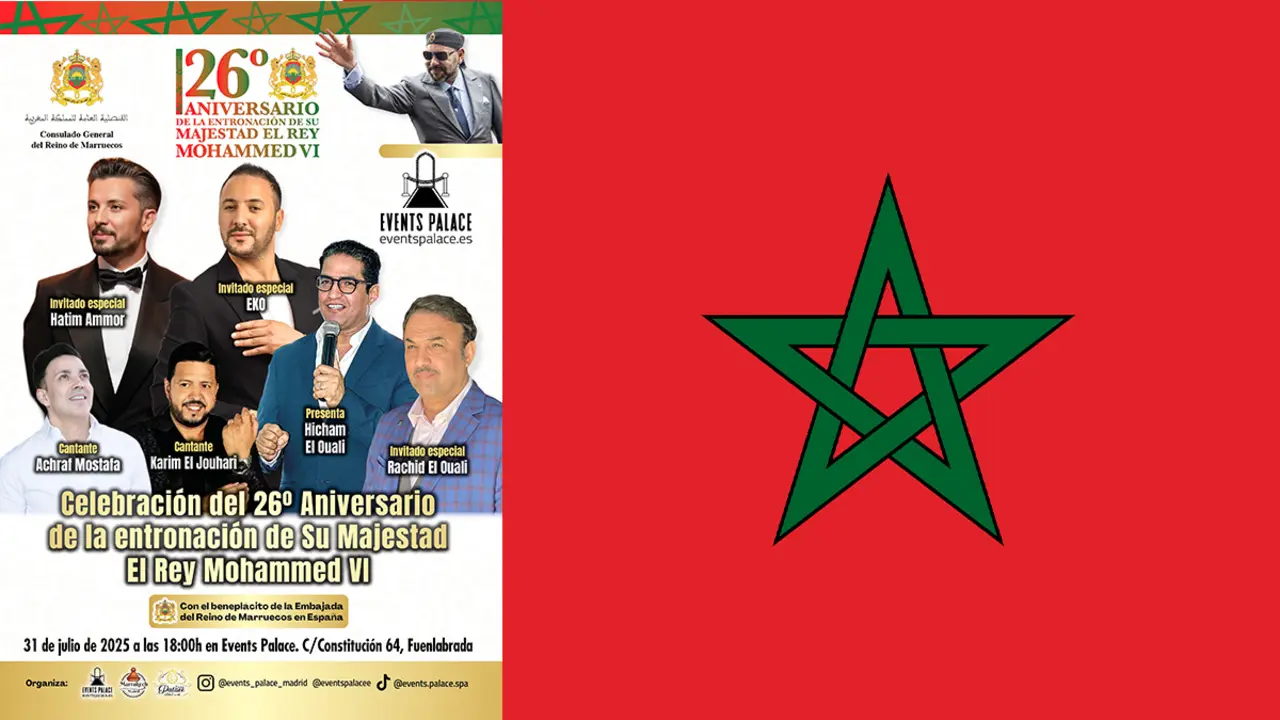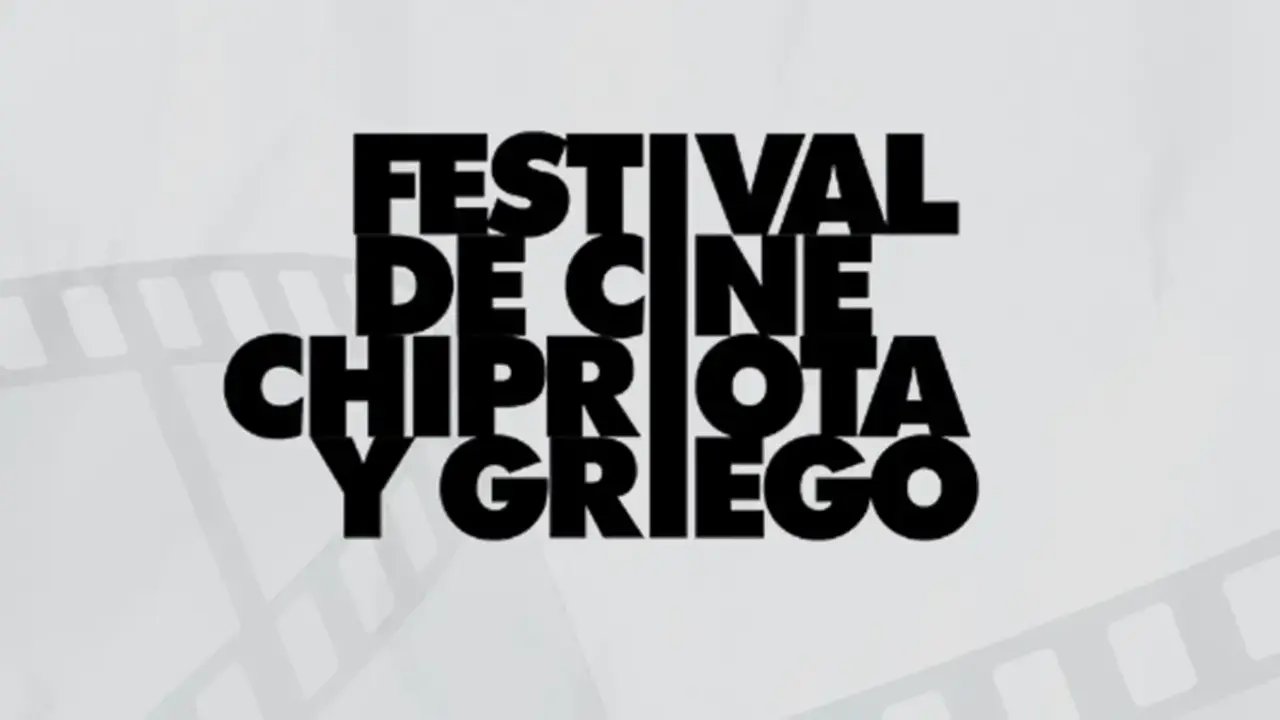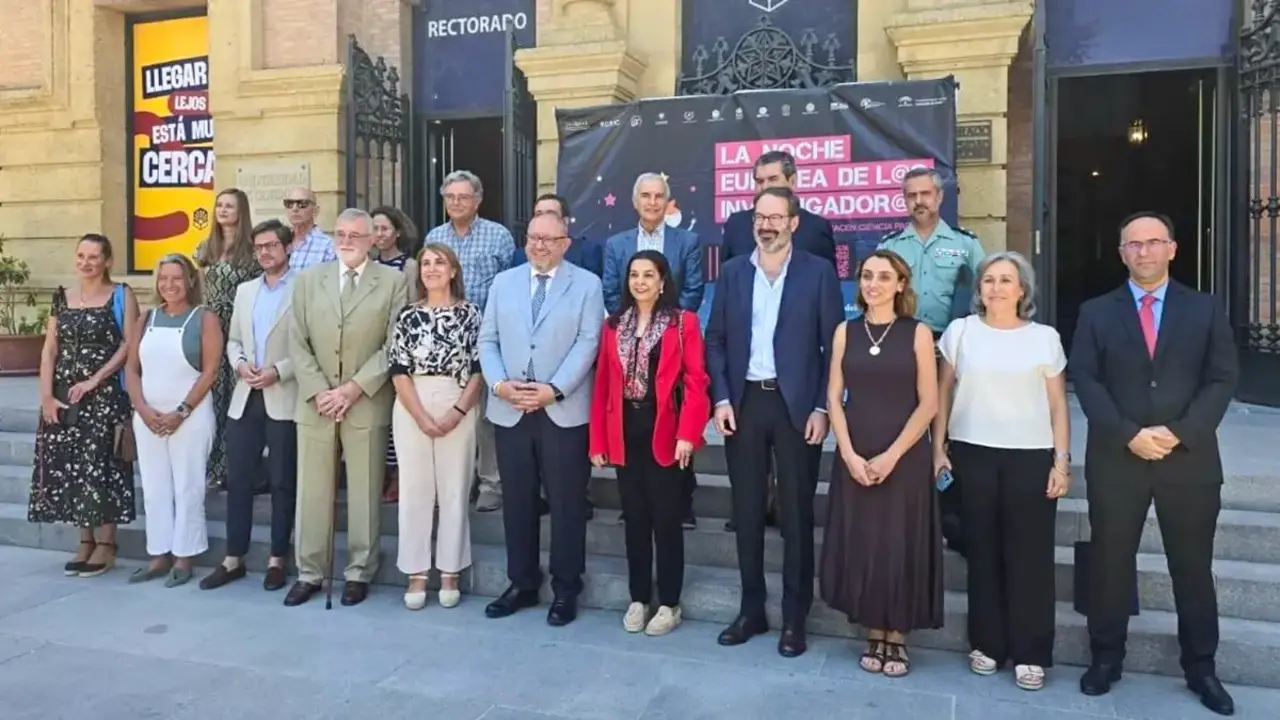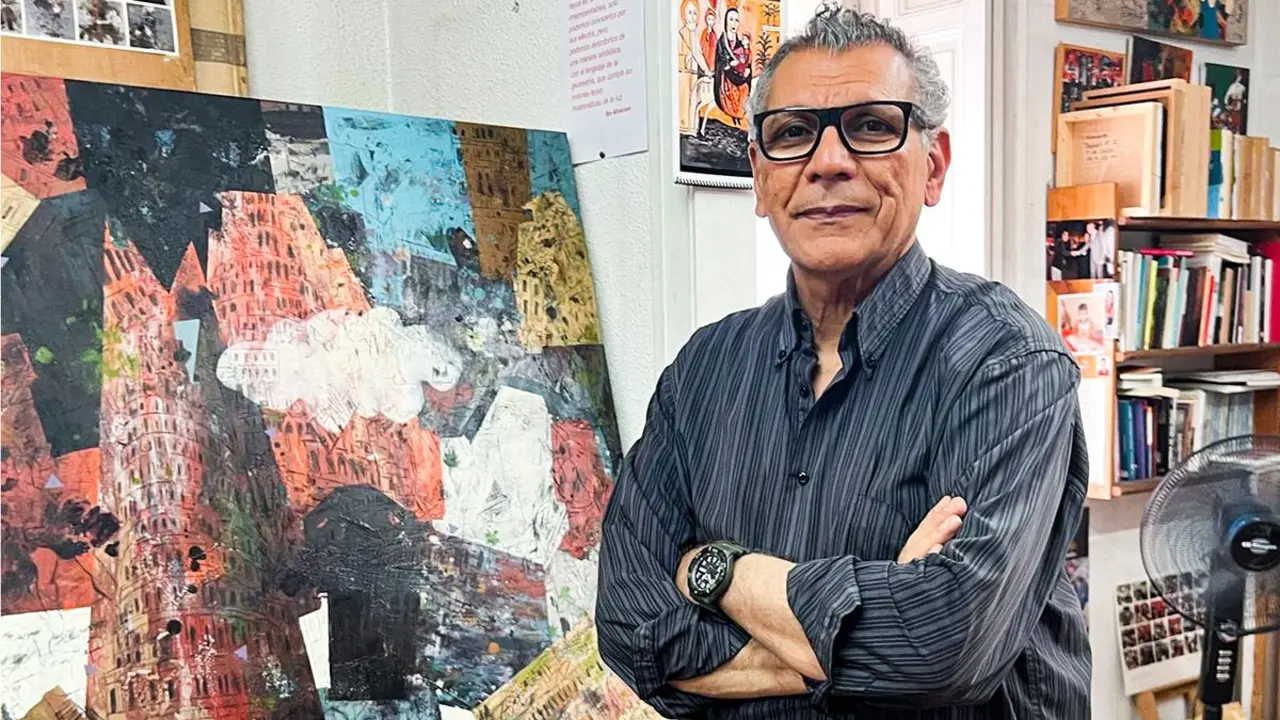Tangier remembers Mohammed Chukri

The Three Cultures Foundation and the Riad Sultan cultural and artistic space have come together in Tangiers to pay tribute in three languages to the Moroccan writer Mohammed Chukri, one of the indispensable pens of Maghreb literature, on the 20th anniversary of his death.
The event, moderated by the librarian Olga Cuadrado, was attended by the Arabist Rocío Rojas-Marcos, author of the biography "Mohammed Chukri: hambre de escritura" (Zut, 2021), to analyse the figure of this author from different perspectives. The event was distinguished by the reading, in Arabic and Spanish, of fragments of the play "Hombre del pan desnudo", by the playwright Zoubeir Ben Bouchta, with the participation of Ali Tajiti in the Spanish version.
"Elaborating a biography immersed in the difficult and complex life of Chukri has been a proposal of the Spanish writer Juan Bonillo who directs the collection 'Vidas Térmicas de Zut Ediciones'", Rocío Rojas-Marcos began her intervention by explaining where the idea of weaving an exhaustive biography of a special writer came from.
Far from being a university academic work, Rojas-Marcos aimed to write a particular biography for Chukri, which had to be narrated using information obtained through researching Chukri's life as if it were a novel. A project that has not been easy; as narrating the true life of a mysterious writer like Chukri is a challenge worth facing.

Guessing the world of Chukri
The work or life of Mohamed Chukri represents, according to Rocío, an exciting subject that opens the way to subjects to reflect on, just as his books are windows to many horizons and make a researching reader ask many questions.
"When I undertook the task of researching Chukriana's life, I came across more or less insignificant questions, but I spent a lot of time on them, for example, her date of birth," Rojas said. The curious thing is that there is no exact date and it is not known when the writer was born, not even the year. The explanation as to why this date does not exist is not easy, as there are no records to go to in order to verify the dates of children born in the thirties of the twentieth century, which is one of the basic questions of a biography.
Thanks to a published letter stating "today is my birthday", by calculating the difference it has been officially announced that Chukri was born in March 1935. However, the photograph of his passport to which Rocío Rojas had access through the writer Bernabé López García states that he was born in 1939, which translates the scarce accurate data regarding Chukri's life.

Analysing the characters in Mohammed Chukri's works, Rocío Rojas clarified how the character of the city forges its inhabitants and approaching the biography through the cities that marked the writer's life have been key to understanding the depth of his life in each of them. Focusing on Tangiers, Chukri considers himself a Tangier writer. However, there are other important cities that have shaped his life, such as Larache, the city where he learned to read and write.
The author of his biography in Spanish emphasised that the work "El pan a secas" contains some of the most dramatic scenes of the first stage of his adolescent life, which will have a very profound importance in the adult that the writer will become. In "El tiempo de errores", at one point, he wonders if the child he was is the adult he is now, reflecting on how much that past in those cities has turned him into this author today.

Tangiers in Chukri's literary career Tánger
Tangiers, the city that has defined and explained his entire literary production, was also a witness to the surprise when, at the end of his life, the greatness of his literature and the importance of his work as a renovator of contemporary Moroccan literature were recognised.
He always said he was a Tangier writer, which is why he said at the end of his life "now they realise that I am a Moroccan writer". After his death, "international writer" was written on his tombstone, marking the interesting leap from Tangier writer to world writer.
Chukri's view of Tangiers is very unusual and special, because he is capable of putting words to what nobody talks about, he is capable of overcoming modesty to use a daring narrative to directly denounce the abuses, prostitution, the absolutely mistreated childhoods of so many children like him. Chukri puts words to a Tangiers that indeed existed but was not the only one to have done so, said Rocío Rojas.

Chukri, a synchronic polyglot writer
"Synchronic polyglot was the way to define an author who was able to bring a linguistic richness to literature by using different languages and dialects in his narration. Thus, in the scenes in which he narrates the suffering of his childhood, his mother tongue was Rifian and he only learnt Darija when he arrived in Tangiers, where he also learnt Spanish with his friends playing in the street", stressed the author of the Chukriana biography.
The explanation depends on who he tells us he is talking to, drawing memories from the memory of an illiterate linked to a language. He cannot remember his mother speaking to him in classical Arabic because it would be like translating her; and that does not make sense and does not connect with the memory. In fact, to simply say that he was only a writer in Arabic would be to slim him down and reduce him to a simplicity that is not the reality of the linguistic complicity of his work, according to the Arabist researcher.
Like Chukri, Berrada is also a literary risk-taker; he includes Darija dialect in his novels, although at some point in the past he wrote to Chukri saying in a letter: "I liked your text, but you use too many terms in Rifian, lighten it up, content yourself with saying "he said in Rifian" when you talk about your mother, but he ignored him and left the text just as he wanted it".

Chukri and Spanish
Mohammed Chukri can be considered one of the Moroccan writers of Spanish-language literature. Although it is written in Arabic, there are passages that he is narrating in Spanish, thus creating literature. He was recalling conversations with his friends and this is literary production in Spanish, due to the deep connection that linked the Tangier-born author with Spanish culture, literature and above all the poets of the Generation of '27.
It should be noted that all his works are translated and published in Spanish, except the play "Asaada" (Happiness), as well as receiving much recognition discovering all this Moroccan richness of the 20th century.
A curious fact in the biography narrated by Rocío Rojas Marcos is situated in a very interesting passage in the novel "Tiempos de errores" in which he tells that he was very drunk and needed money, so at a time in his life he decided to sell his library and only kept two books, the poetry book of King Al Mutamid and the complete works of Rosalía de Castro.

Rojas's work opens our eyes to such an extraordinarily dramatic literature with such an interesting psychological depth that it is a narrative that is physically felt. Chukri has marked a before and after for Moroccan literature in the 20th century, a total break with the literary canon and a complete paradigm for understanding contemporary Moroccan literature.
Throughout the tribute to Mohammed Chukri, photographs of the writer himself, taken by the photographer Rachid El Ouattassi, were projected.

